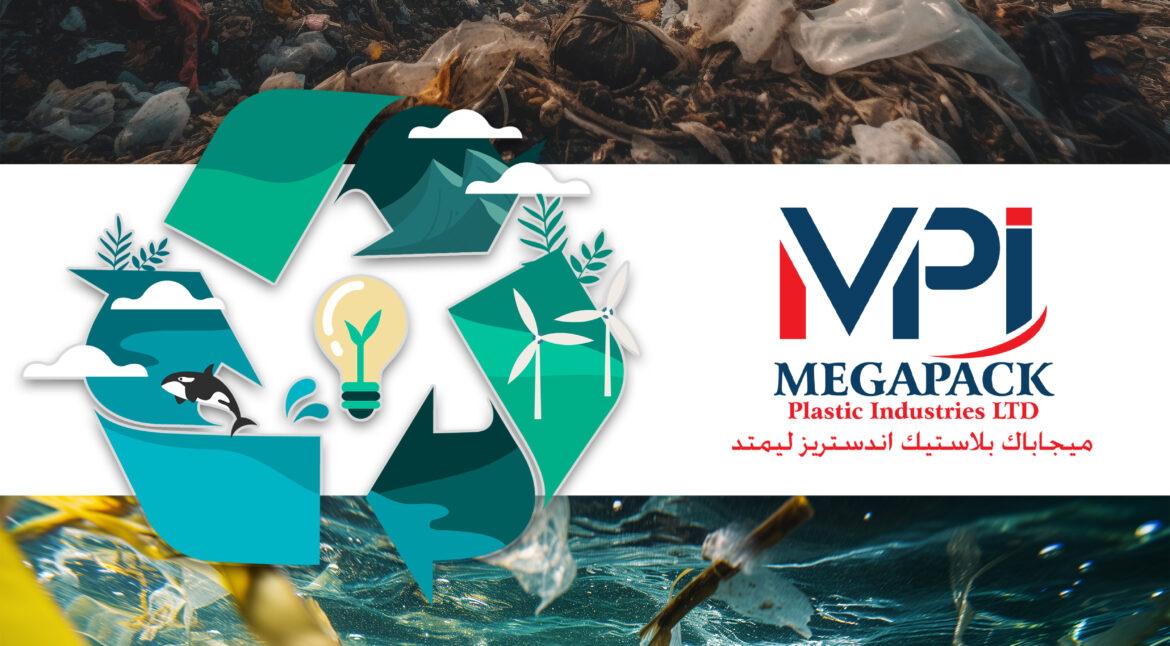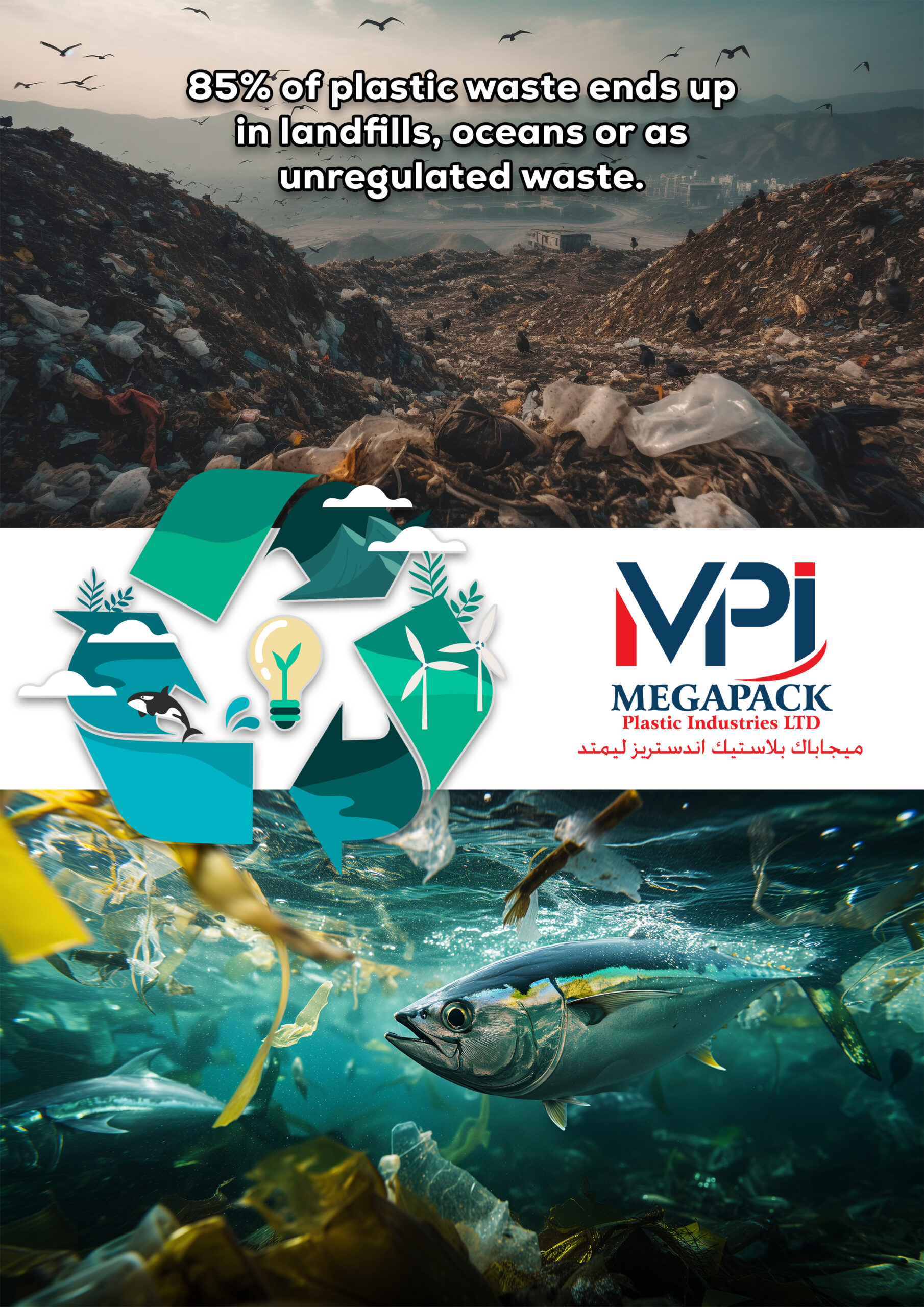
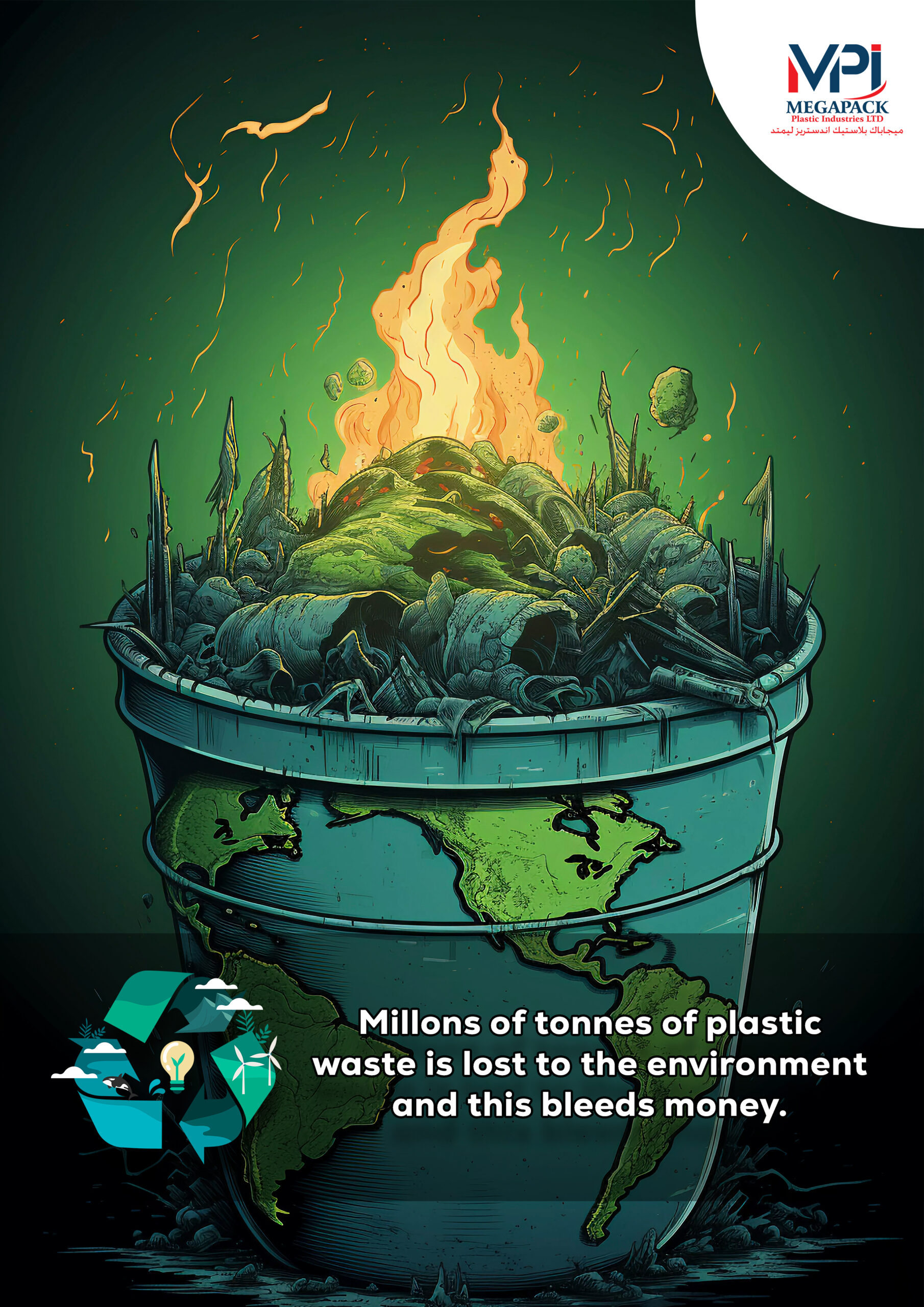
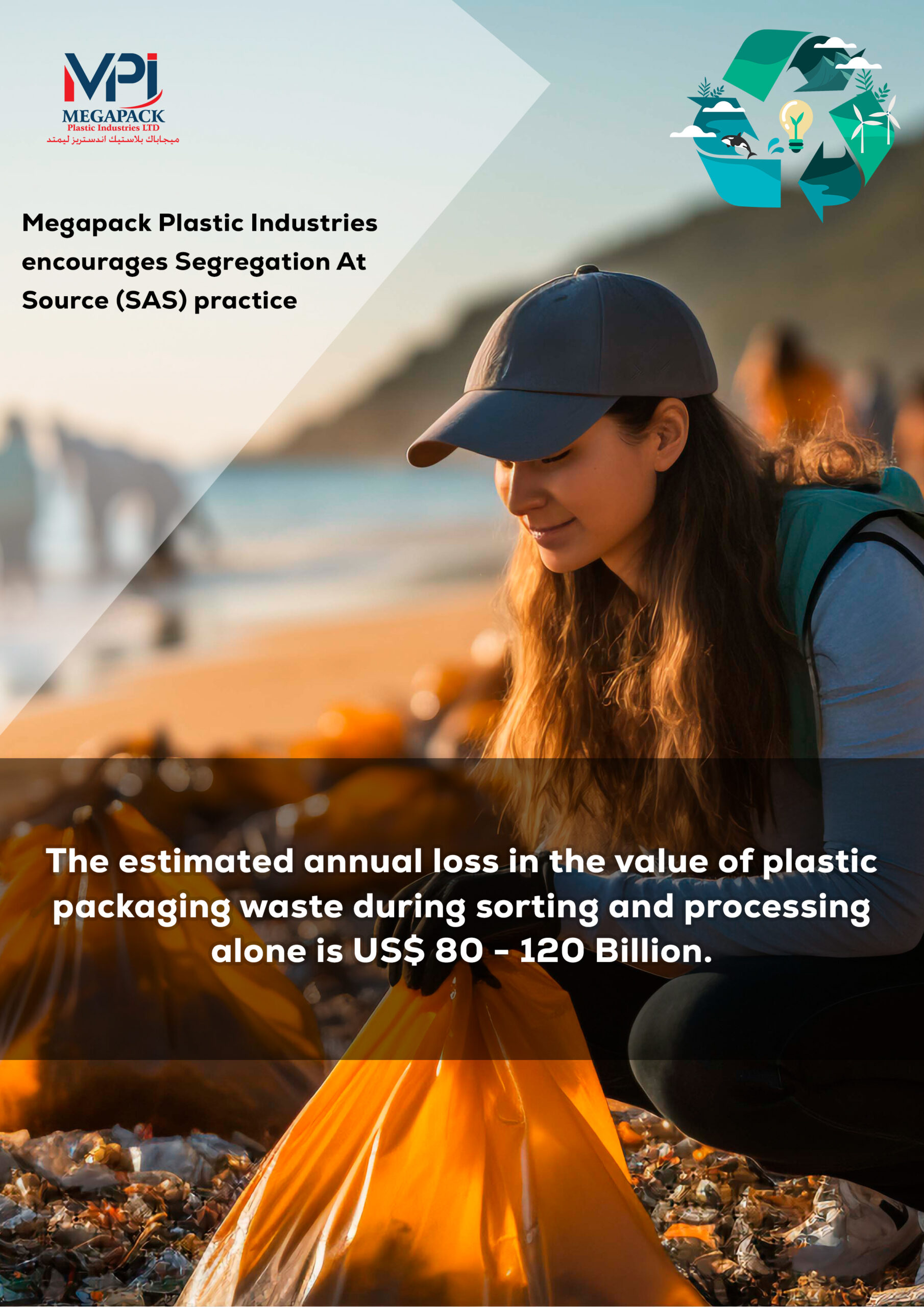
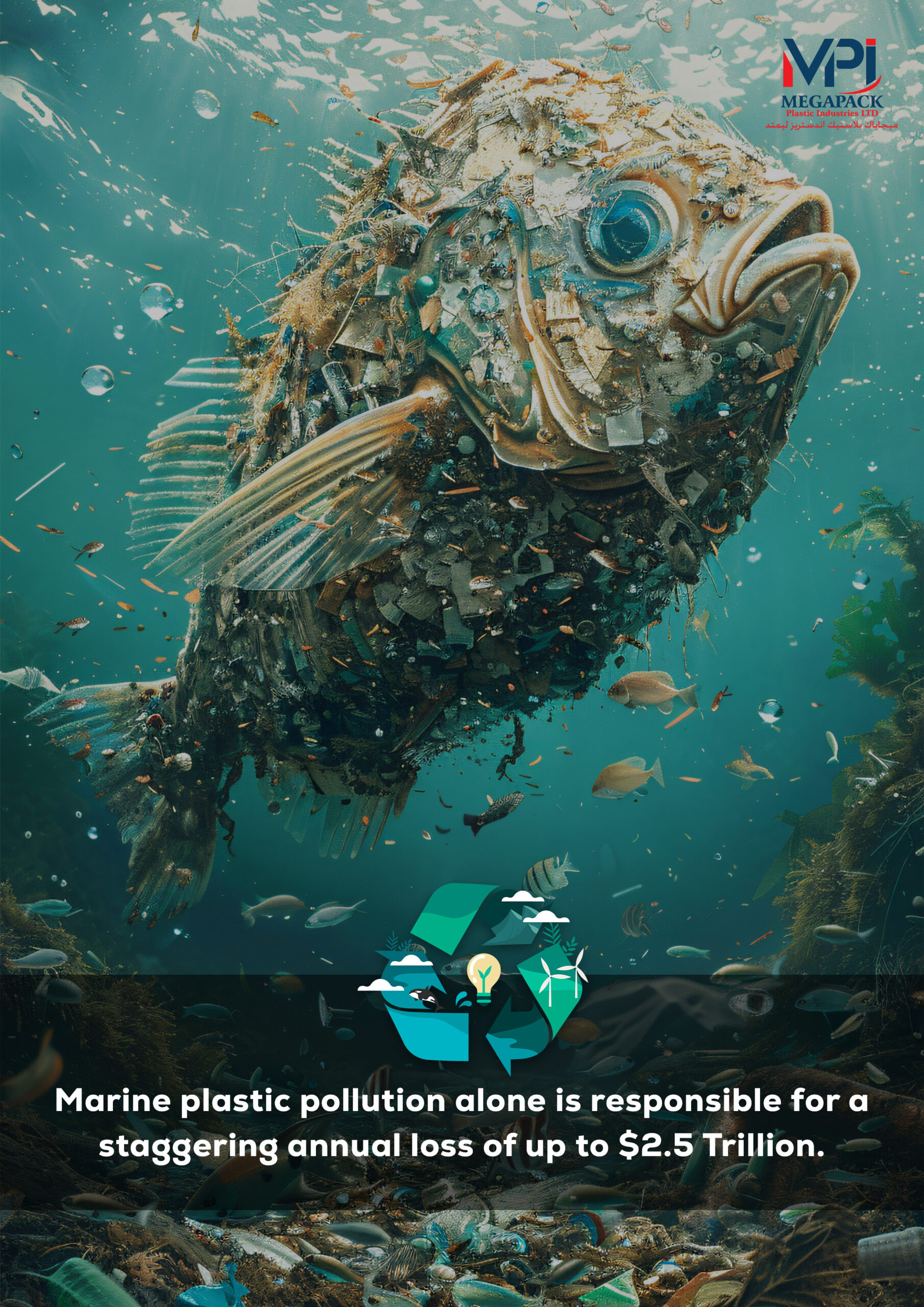
The economic fallout of plastic waste management is palpable. The world over, 85% of plastic waste ends up in landfills, oceans, or as unregulated waste. Millions of tonnes of plastic waste are lost to the environment and this bleeds money. The estimated annual loss in the value of plastic packaging waste during sorting and processing alone is US$ 80- 120 billion. Marine plastic pollution alone is responsible for a staggering annual loss of up to $2.5 trillion.
It’s clear that the world needs to deal with this problem as a priority to limit environmental damage and to reduce the significant losses emerging from it. Recycling is a business imperative. Moving towards recycled packaging, particularly recycled plastics helps meet environmental goals and makes economic sense. Companies that embrace recycled packaging often find themselves benefiting from cost savings, regulatory incentives, and enhanced brand loyalty.
The Business Case for Recycled Plastics
The recycled plastics market is projected to reach USD 64 billion in 2025 and is expected to grow significantly, driven by environmental awareness, government regulations, and technological advancements in recycling. Consumer demand for eco-friendly packaging is fueling this growth. Virgin plastic, derived from fossil fuels, is not only subject to price volatility due to fluctuating oil markets but also faces higher taxation and regulatory scrutiny.
An economic advantage of recycled plastics is the cost of competitiveness. In fact, recycled plastic can be 20-30% cheaper than virgin plastics when sourced efficiently. Moreover, manufacturers of end-user packaging benefit from government subsidies and tax breaks when they adopt a circular economy approach.
Recycling is good for the bottom line
Lower cost of materials: The price of virgin plastics is tied to the vagaries of oil prices. Recycled plastic, on the other hand, has the added advantage of localized supply chains, reducing exposure to global market fluctuations. Successful companies will use this competitive advantage to stabilize costs and eliminate supply chain risks.
Avoid regulatory penalties: The world over, governments are imposing extended producer responsibility laws mandating businesses to recover and recycle plastic waste. The EU, for instance has introduced an €800 penalty on every ton of non-recycled plastic waste, increasing the financial burden on companies using virgin plastics.
Achieve brand loyalty: Research shows that 79% of consumers consider sustainability in their purchasing decisions. Winning brands will leverage this changing consumer behaviour to their advantage and adopt recycled plastic packaging to build brand loyalty among customers. And loyal customers are 34% more likely to purchase again, helping improve revenue.
Move from multi-layer to single-layer plastics: Single layer plastics are easy to recycle. Since multi-layer plastics contain resin, aluminum, etc, the recycling process is costly. Hence they end up in landfills. Switching to single-use plastics is better for the bottom line and the environment as it doesn’t require multiple raw materials to manufacture or recycle, bringing down costs significantly. Ultimately, the benefits are multifold:
- Lower manufacturing costs
- Lower waste disposal costs
- More stable material pricing
- Increased consumer preference and brand value
- Regulatory compliance, avoiding penalties
Switching to recycled packaging is not just an environmental choice—it’s a strategic financial move. The economics of recycled packaging are clear: embracing it today means securing cost savings, compliance, and customer loyalty for years to come. That’s why Megapack Plastic Industries has a closed-loop solution with the Onus Credit Program.
We collect recyclable materials from businesses and create consumable packaging products like blown film, stretch film and adhesive tapes. Through this initiative, businesses and plastic scrap suppliers can either encash or earn credits that can be redeemed for consumable products. It’s a mutually beneficial scenario for manufacturers, businesses, and, most importantly, the environment—bringing us closer to a genuine circular economy.
Sustainability isn’t a trade-off but rather a business imperative. Businesses that integrate circular economy principles into their packaging strategies aren’t just reducing waste, they’re securing long-term profitability, operational efficiency and brand trust. The future belongs to businesses that see sustainability not as an obligation but as an opportunity to lead.






